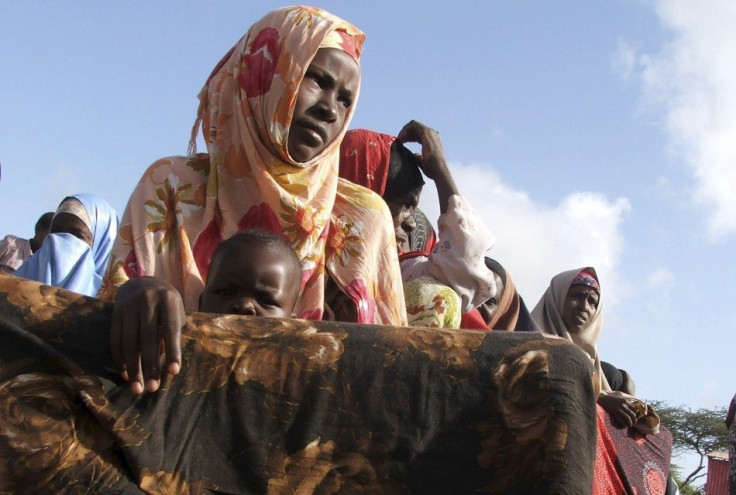Emergency Aid to Horn of Africa Must Come With Long-term Food Security: UN [PHOTOS]

The United Nations Secretary General Ban Ki-moon on Monday said long-term efforts to boost food security in the Horn of Africa must accompany the emergency aid to those affected by the drought-related hunger.
"Short-term relief must be linked to building long-term sustainability," Ban said in a message to delegates attending a U.N.-convened emergency ministerial meeting on the Horn of Africa in Rome. "This means an agricultural transformation that improves the resilience of rural livelihoods and minimizes the scale of any future crisis."
Ban said this mean having climate-smart crop production, livestock rearing, fish farming and forest maintenance practices that enable all people to have year-round access to the nutrition they need.
It is estimated that 11.6 million people in Ethiopia, Djibouti, Kenya and Somalia are facing severe food shortages. The rates of malnutrition and related deaths having reached alarming levels in many parts of the region, according to the U.N., which declares a state of famine in two areas of southern Somalia last week. The famine is said to be the worst to affect the country.
Donors are being urged to provide a further $1 billion to help those facing hunger. And it is estimated that $2 billion in aid is needed for the humanitarian response to the drought emergency. One billion of that has been committed so far, according to the U.N. Office for the Coordination of Humanitarian Affairs.
The delegates realized that the current famine could become a humanitarian disaster if a response is delayed.
"The combined forces of drought, inflation and conflict have created a catastrophic situation that urgently requires massive international support," Jacques Diouf, director-general ofthe U.N. Food and Agriculture Organization or FAO. "If we want to avoid future famine and food insecurity crises in the region, countries and the international community urgently need to bolster the agricultural sector and accelerate investments in rural development."
Josette Sheeran, executive director of the U.N. World Food Program, or WFP, said many of the women she met in Somalia and Kenya over the last few days lost their children and had non one to turn to but the humanitarian agencies on the ground.
"We are particularly worried about Somalia right now and it is vital that we reach those at the epicenter of the famine with food assistance - especially the highly fortified nutritious products that are so important for vulnerable children," Sheeran said.
Delegates at the meeting said there is still a "window of opportunity" to support affected populations, including farmers, fishing communities and herders to rebuild their livelihoods.
WFP is feeding 1.5 million people in Somalia and is trying to reach another 2.2 million in areas of the south that had remained inaccessible.
Food drops are being considered, according to an OCHA update.
The U.N. said it will start airlifting food to famine-stricken Somalia on Tuesday.
In the meantime, the U.N. Children's Fund, or UNICEF, has reported that 780,000 children are acutely malnourished in southern Somalia. That's a 35 percent increase since January, according to the U.N. The agency has sent in nearly 900 tons of therapeutic and supplementary feeding supplies, which is enough to assist some 38,000 children in the coming days.
Similarly, the Office of the U.N. High Commissioner for Refugees, or UNCHR, is giving out aid packages to some 189,000 people in southern Somalia and working with local authorities and other partners to register Somali refugees arriving in large numbers in Kenya and Ethiopia. There are making efforts to urgently improve shelter, water and other aid services for the refugees.
© Copyright IBTimes 2024. All rights reserved.












